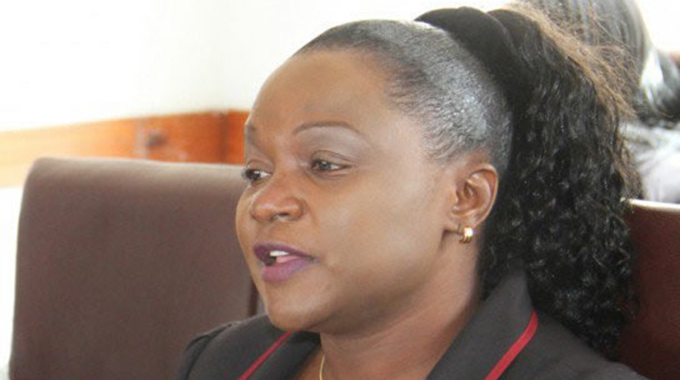NPCR workshop ends on a high note

Fidelis Munyoro Chief Court Reporter
GOVERNMENT last week held an induction workshop for the six newly appointed National Peace and Reconciliation Commission (ZPRC) commissioners for them to familiarise with their constitutional mandate.
Justice, Legal and Parliamentary Affairs Ministry is now in charge of issues to do with the Commission.
In an interview yesterday, Justice, Legal and Parliamentary Affairs Secretary Mrs Virginia Mabhiza said the orientation for the six last weeks ended on a high note and all the commissioners are ready to hit the ground running on their new mandate.
“We carried out an induction for newly appointed NPRC commissioners last week for them to familiarise with their constitutional mandate and also how they interact with other institutions, mindful of course, of the independence of the Commission,” she said.
Mrs Mabhiza said presenters at the induction included the Office President and Cabinet, which dealt with issues to do with conditions of service and Parliament on its role in relation to NPRC while the Ministry of Justice focussed on the constitution and other legal and governance issues.
The six commissioners include experts in conflict and peace resolution Dr Donwell Dube and Mr Tinashe Rukuni, Reverend Chiropafadzo Moyo of the Evangelical Lutheran Church in Zimbabwe, former deputy police Commissioner-General Crime Josephine Shambare, former MDC spokesperson Obert Gutu and seasoned peace-building campaigner Ms Nomaqhawe Gwere.
Thy are drawn from a cross-section of Zimbabweans in their diversity and were sworn into office by President Mnangagwa early this month.
They replaced commissioners whose terms had expired and will serve under the chairmanship of Justice Selo Nare who was only appointed in 2018.
The commissioners are appointed on a five-year term which is renewable only for a second term.
The function of the Commission is to deal with issues of peacebuilding, conflict resolution and act as a mechanism for alerting the nation when there is a potential situation that can cause conflict.
According to the National Peace and Reconciliation Commission Act, the National Peace and Reconciliation Commission may, through the appropriate Minister, submit reports to Parliament on particular matters relating to national peace and reconciliation which, in the Commission’s opinion, should be brought to the attention of Parliament.
The Act provides for the functions, powers, operations, and removal from office of the members of the Commission, manner of conducting investigations, and staffing of the Commission, among others.
The NPRC is established under Sections 251 to 253 of the Constitution to ensure post-conflict justice, healing, and reconciliation, to develop programmes to promote national healing, unity, and peaceful conflict resolution.










Comments